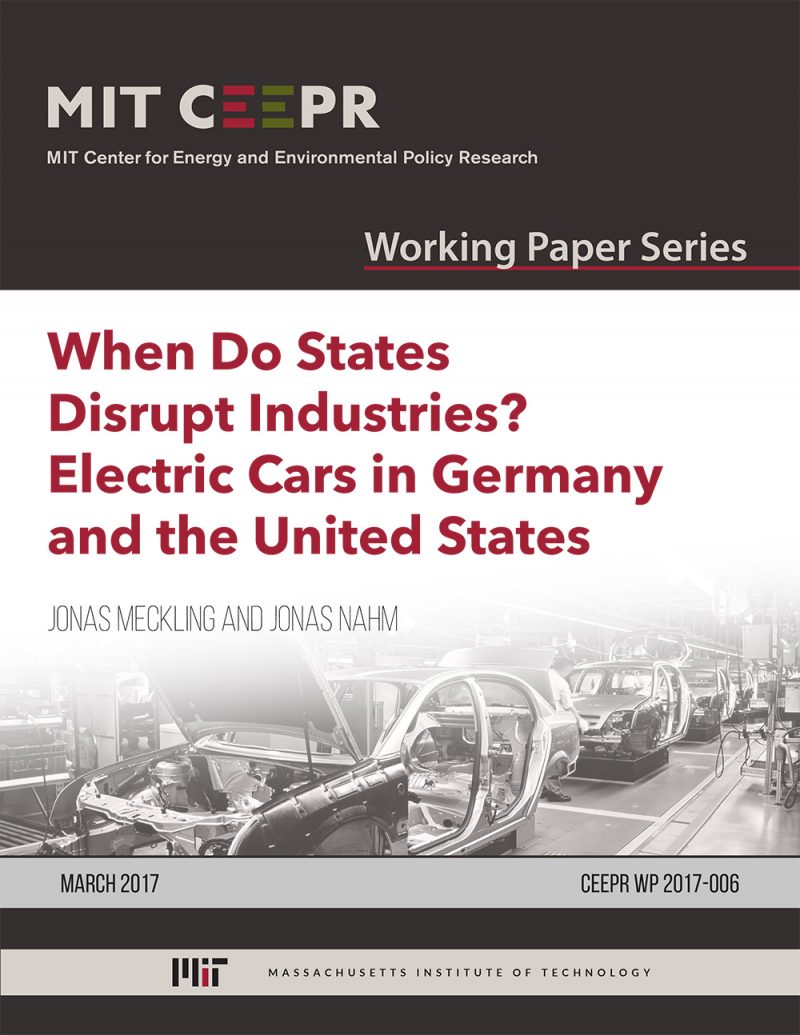When Do States Disrupt Industries? Electric Cars in Germany and the United States
Jonas Meckling and Jonas Nahm
March 2017
The literature on the developmental state suggests that state structure determines the ability of governments to drive technological change. This article argues that in mature industries systems of interest intermediation shape the state’s capacity for sectoral intervention. In corporatist developmental states, industry and government coordinate technological transformations in consensus-driven negotiations. Such coordination prioritizes the interests of incumbent firms, resulting in weak policy intervention. In pluralist developmental states, competition among interest groups and state agencies allows policymakers to organize coalitions of technology challengers in support of technological change, leading to strong policy intervention. We examine our argument in the context of electric vehicle policy in Germany and the United States. While Germany failed to disrupt its auto industry, the United States adopted comprehensive policy for the manufacturing and commercialization of electric cars. Our findings suggest that, counter to conventional wisdom, pluralist states can effectively engage in sectoral intervention in mature industries.



